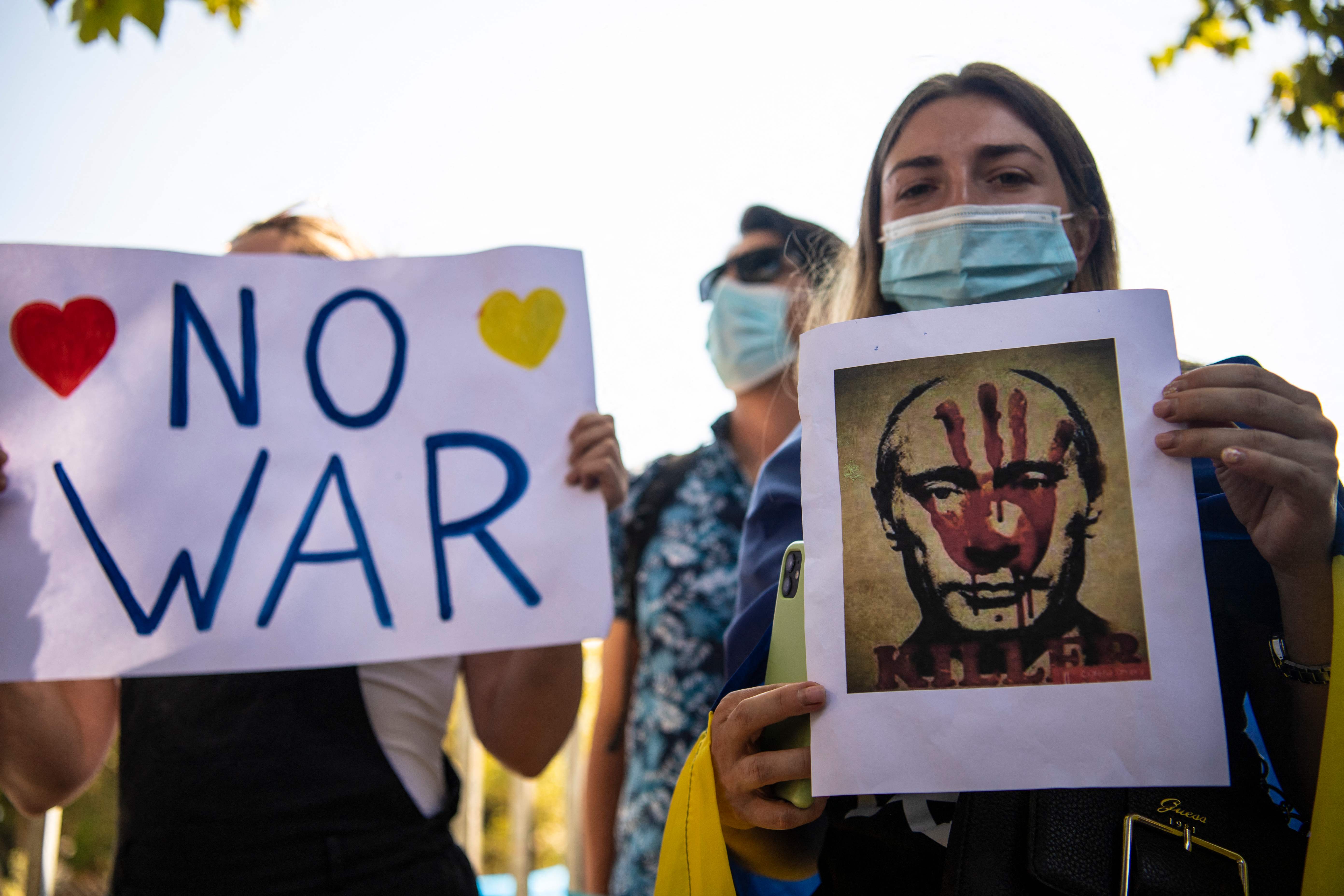A bleak future for Russia: How will Putin’s war in Ukraine affect the global economy long term?
Look 10 years down the line and Russia will have found itself back in the position it was in 1980 – lagging increasingly behind the west, writes Hamish McRae


Sometimes it is easier to look 10 years forward than 10 days – and so it is with the horrible events taking place following Russia’s invasion of Ukraine. But it is becoming clear, at least here in Washington, that the Russian people will face a bleak economic future while the present regime remains in power.
The immediate picture is one of the US pushing EU countries to toughen up Europe’s economic response to Russia. Germany in particular has moved radically, a sharp contrast to its policies of a few weeks ago. It seems extraordinary now that Germany should have pressed on with the completion of the Nord Stream 2 gas pipeline and only halted plans for its certification this month.
Some Russian banks have just been excluded from the Swift international payments system, but we don’t know for how long the ban will last or how extensive it will turn out to be. However, we can begin to glimpse how Russia’s economic relationship with the west is likely to be transformed over the course of this decade, unless and until there is radical change in Moscow.
The starting point is that the Russian economy has a key strength as an exporter of energy and some other natural resources. It has many talented people – an educated, entrepreneurial, vibrant workforce – but they can only deploy their talents fully if Russia is integrated into the world economy. Now it will be tougher for them to do so. If Russia is to prosper, it has to make the transition from a raw material producer to a knowledge economy.
In the years ahead, assuming there is no change of regime, Russia will find itself cut off in a number of ways. Europe needs Russian gas right now, and whatever happens in the coming weeks, I expect that eventually Nord Stream 2 will be commissioned. But Europe will diversify its sources of energy. It has to. And there will be very little inward investment, either of money or of knowhow, in Russian energy production.
There is always a market for oil and gas. Sanctions have not prevented Iran from exporting oil. However, Russia will find itself exporting more to China and perhaps India, rather than to its natural market in Europe. As the world moves away from reliance on fossil fuels, its petroleum wealth will become a less important asset, and the country will become a little poorer than it otherwise would be.
A further headwind will be not having access to western capital markets. Countries with natural resources can always find the money to invest. But if you don’t have access to the west you are forced to rely, again, on China. As many countries have discovered with the Belt and Road Initiative, there can be harsh terms associated with such investment. Russia and China are unequal partners, and Russia will come to understand who is the top dog.
But perhaps the most difficult challenge a Russia cut off from the west will face will be a lack of access to its technology. That is one of the key reasons why the west streaked ahead of the Soviet Union and its satellites in the 1970s and 1980s. Eastern Europe found itself poorer and poorer compared to western Europe, largely as a result of not being able to use computers to lift productivity.
To keep up to speed with all the latest opinions and comment, sign up to our free weekly Voices Dispatches newsletter by clicking here
It is different now because there is an alternative source of technology. Again, it’s China, which has in various ways acquired much of the knowhow of the west. There is the separate issue as to whether the US has been wise to allow this to happen, but America is still a technological leader in most areas and is likely to compete more aggressively against China in the years ahead.
Look 10 years down the line and Russia will have found itself back in the position it was in 1980 – lagging increasingly behind the west. We should not for one moment underrate the energy and intelligence of the Russian people. The point is simply that they will find themselves butting against increasingly strong headwinds to maintain their living standards, as their country finds itself eased out of world markets. There will be no single tipping point; just a gradual loss of competitiveness, and the consequential loss of opportunities for its people.
There is a further point. Russia will find it hard, even impossible, to attract skilled migrants from abroad, so it will have to manage with the talent pool it has available. That would never be a recipe for economic success, but particularly so given its need to move away from its dependence on petroleum exports.
The Russian people face an increasingly bleak future under the present regime, as their country becomes less important in the world. The challenge for them is how to reform their government.
Join our commenting forum
Join thought-provoking conversations, follow other Independent readers and see their replies
Comments
Bookmark popover
Removed from bookmarks